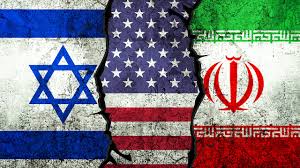
After twelve days of escalating hostilities, the skies over the Middle East were momentarily quiet — but the tension was to be far from over.
Israeli Defense Minister Israel Katz made global headlines by ordering a direct strike on Tehran, claiming that Iran had violated a ceasefire by launching missiles after agreeing to halt operations. The strike followed a violent missile salvo from Iran that hit Beersheba, killing at least four people, shaking the fragile ceasefire agreement brokered just hours earlier.
The ceasefire deal was initiated by U.S. President Donald Trump, who called on both sides to immediately de-escalate. Israeli Prime Minister Benjamin Netanyahu confirmed his government’s acceptance of the truce, emphasizing Israel’s willingness to honor the agreement — provided Iran halted its attacks.
But Iran’s position was far less conciliatory. Foreign Minister Abbas Araghchi disputed the existence of any formal ceasefire, declaring that Tehran would only stop its strikes if Israel ceased its “illegal aggression” by 4 a.m. Iran’s local time. That condition, it seems, was not met in time.
The humanitarian cost of this short but brutal conflict has been steep. Iran claims more than 400 of its people have died, including 13 children, with over 3,000 injured since Israel began its offensive on June 13. On the Israeli side, 24 fatalities have been confirmed from Iranian strikes.
Despite the heavy casualties, many in Iran believe the country has emerged defiant. Analysts say Israel and the United States failed to achieve their primary war goals: dismantling Iran’s nuclear infrastructure and provoking regime change.
Abas Aslani, a research fellow at Tehran’s Center for Middle East Strategic Studies emphasized that Iran is approaching the ceasefire cautiously, citing Israel’s past violations of similar deals in Gaza and Lebanon. “If there are no violations over time, Iran may commit more openly to the ceasefire.”
Later, Iran’s Supreme National Security Council had issued a formal statement confirming its agreement to a ceasefire. It framed the move as a strategic national decision, claiming that Iran had already delivered a “humiliating and exemplary response” through its attacks on the U.S. base in Qatar.












